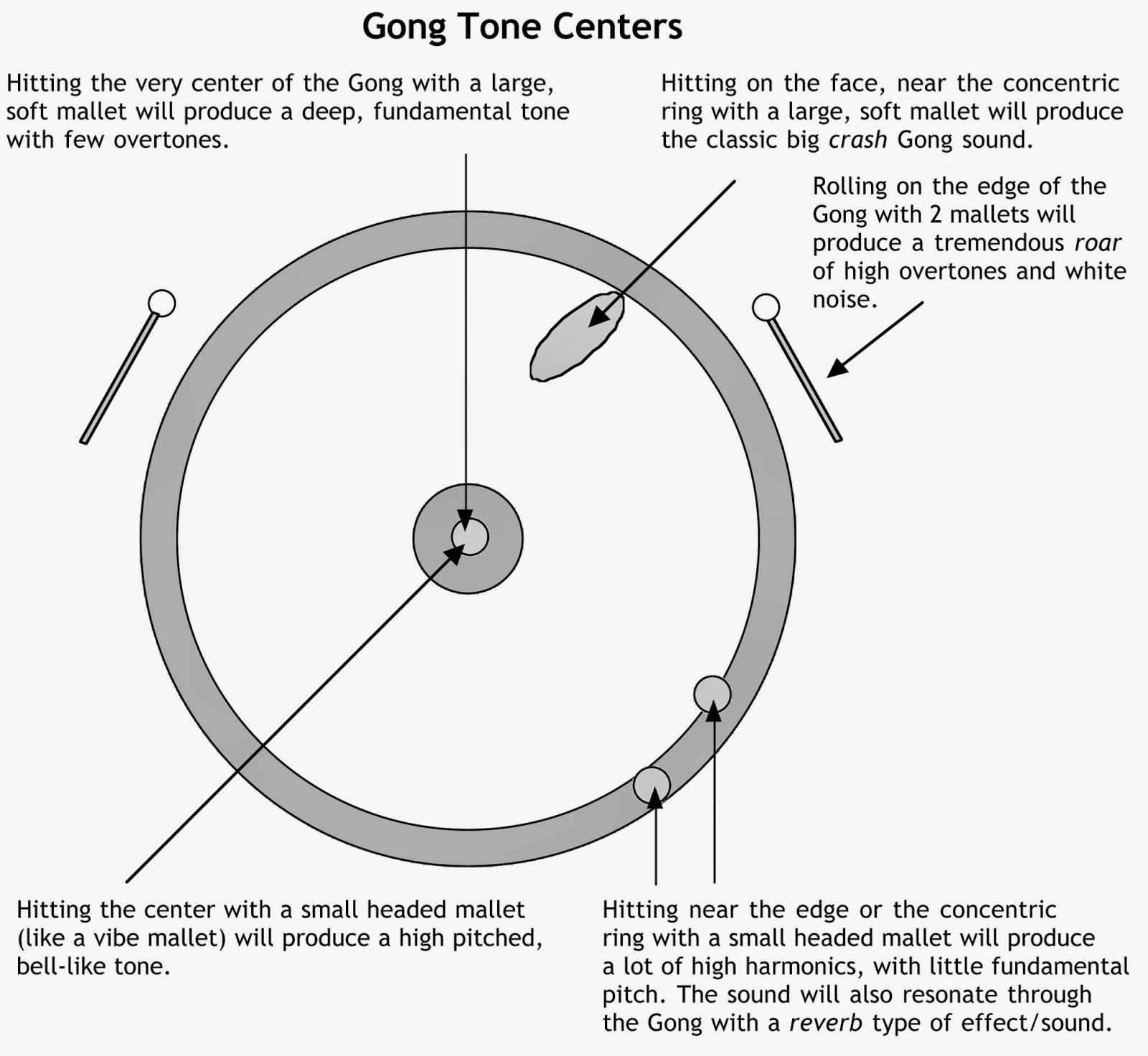Percussion Technique for Non-Percussionists - Part 2

My last blog post seems to have vibrated with a lot of different people. I received some lovely responses, as well as further questions. Please note that these 2 posts are mainly written for the person who obtains a Gong for personal sound work and perhaps has no previous musical experience or training. So let's look at a few other ideas here today. Why do I do that? I've had some people question the way I play the Gongs, “You really should never hit the Gong in the center,”or, “You shouldn't play on the edge (of a Paiste Gong) because you could damage it.” To that I bring up: Rule #1 - The Are No Rules. There is no Gong Bible or ancient codex with all the rules for playing Gongs written in it. Unless you have some sort of spiritual tenet that says, “Don't play the center of the Gong,” then I see no reason not to! As a trained percussionist, I'm always interested in the sounds that can be yielded up by the Gong. The center creates a very unique bell-like...